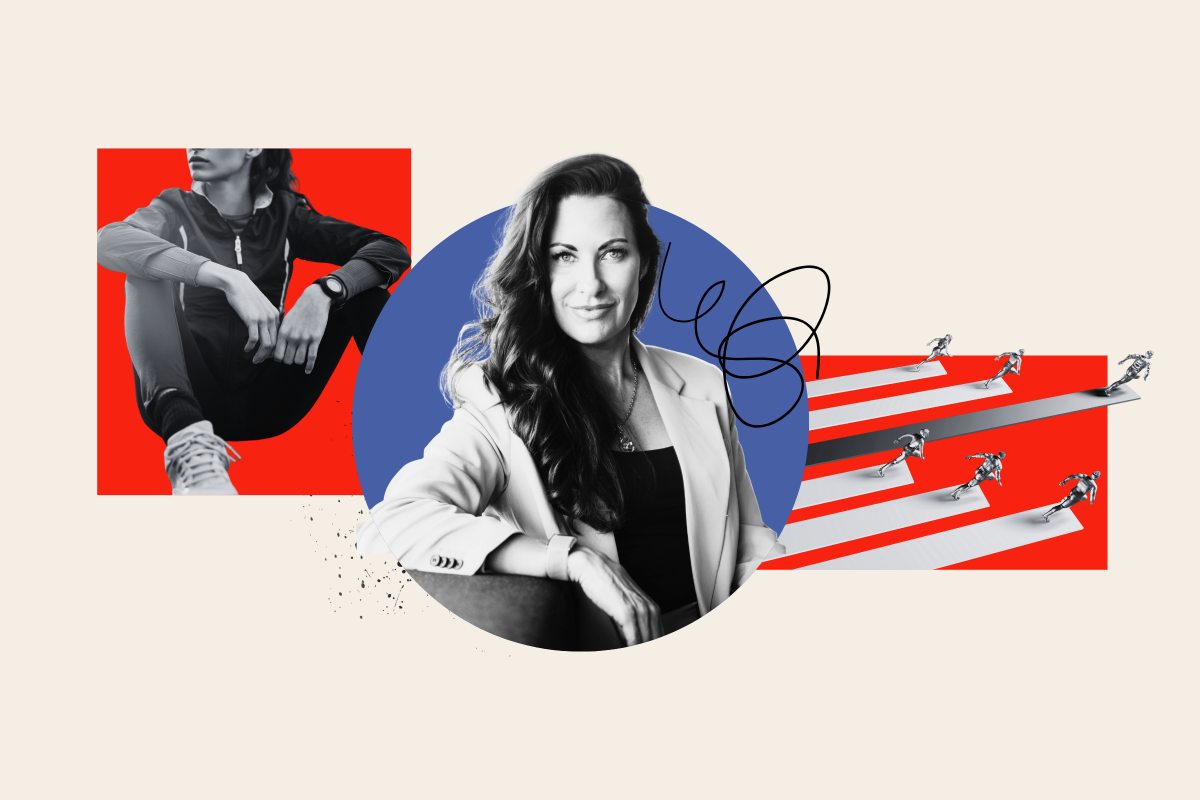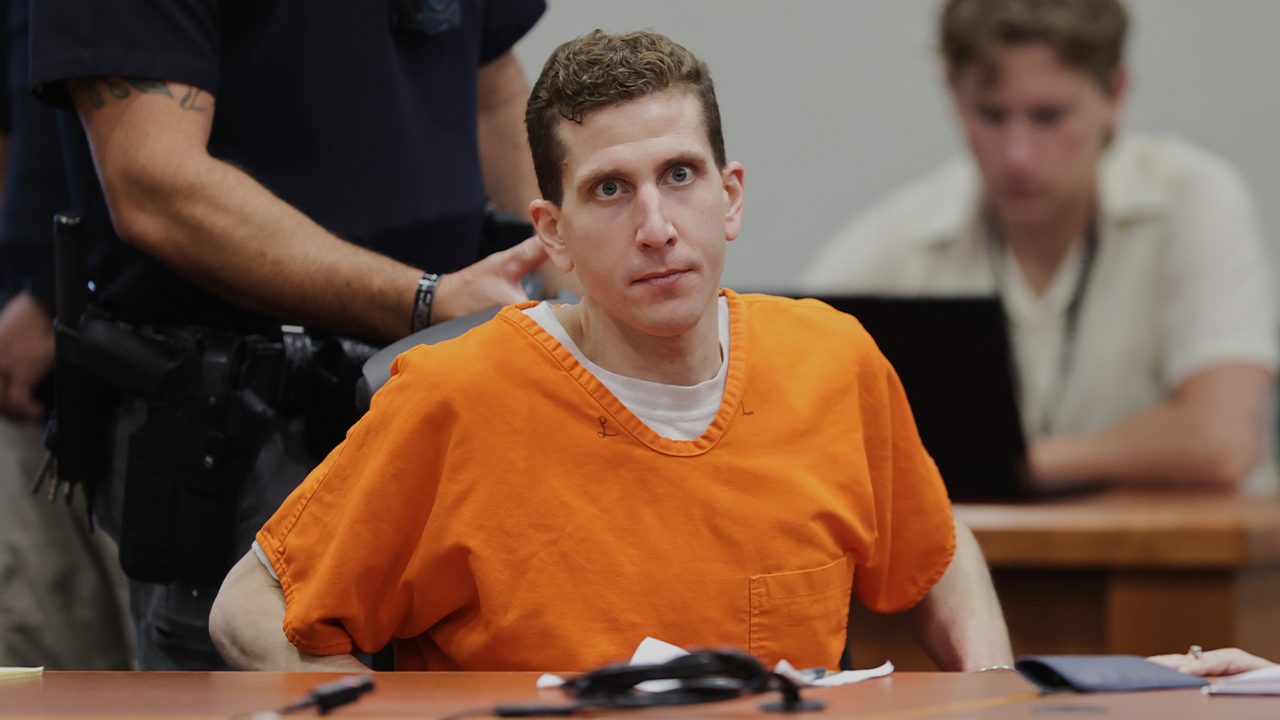Copyright Newsweek

Dr. Kristen Holmes has been snacking. She pops them in throughout her day, between research projects, podcast shoots, board meetings and mom duties. But the snacks in Holmes diet can’t be found on grocery store shelves. The snacks she uses to fuel her days consist of kettlebell swings, goblet squats, pushups and planks instead—what she calls “exercise snacks.” “I basically try to do 10 sets of something throughout the day. We know from the data that this improves metabolism, lowers blood sugar levels, gives you a vascular pump, helps with blood flow and gets oxygen and blood to the tissues, which helps to promote recovery,” Holmes told Newsweek. “Exercise snacks have been a massive upgrade [to my routine].” If anyone else was advising you to add an inedible snack to your daily habits, you might roll your eyes. But when the tip comes from a three-time All-American athlete and two-time Big Ten Athlete of the Year at the University of Iowa, and now, the global head of performance and principal scientist at WHOOP, the company behind your favorite athlete most-loved wearable—you might reconsider. For a long time, Holmes had a personal interest in performance. After playing field hockey and basketball at Iowa, she went on to compete for the U.S. National Field Hockey team. And then, her interest in athletic potential expanded beyond just herself once she became one of the most successful coaches in Ivy League history, leading Princeton University to 12 league titles and a National Championship over 13 seasons. About halfway into her career, Holmes found herself deeply enmeshed in technology side of performance. Those data points became a vital window to understand how her athletes’ bodies responded to training. Pretty quickly, she found out it wasn’t the two hours of training that really had an impact on their potential. “It’s actually the other 21 hours of the day that are more predictive of how they show up the next day,” Holmes said. While at Princeton, Holmes met Will Ahmed, the founder and CEO of WHOOP, a $3.6 billion wearable tech giant headquartered in Boston. Ahmed, a student athlete at Harvard, started the company in 2012 to give athletes a better way to track the efficiency of their training and recovery periods. Today, WHOOPS straps can be spotted on the wrists of LeBron James, Michael Phelps, Cristiano Ronaldo, Sue Bird, Katie Ledecky, Patrick Mahomes, Rory McIlroy and Aryna Sabalenka, and the list goes on. “We had started on this very extreme end of the spectrum, where you have individuals who are calibrating their lives around these data points and are working at the edge of those margins, looking for 0.06 of a second to win the gold medal,” Holmes told Newsweek. “But what I saw really quickly at WHOOP, as we kind of diverged from just elite athletes to a more general consumer market... [is that] at a basic level, these foundational principles of human health and functioning are no different for the Michael Phelpses than they are for the typical Jane or Joe.” In the last two and a half years, WHOOP has added features like a step counter and a stress monitor. This summer, the startup announced its Advanced Labs, an option to combine blood tests with WHOOP data. Users can purchase lab tests with Quest Diagnostics that deliver results across 65 biomarkers, alongside an independent clinician-reviewed report and personalized action plan. WHOOP's expansion strategy is part of a larger effort to not only deliver more data but also to broaden its reach in what has become an increasingly competitive market. According to a recent report from business consulting firm Grand View Research, the global wearable technology industry is expected to grow from $84.2 billion in 2024 to $186.14 billion by 2030. Wristwear products account for the largest revenue share, representing more than 58 percent of the 2024 market. Today, WHOOP straps are “for any human who is interested in understanding their body and is not interested in guessing,” Holmes said. The company is continuing to move in that direction, Alexi Coffey, WHOOP's vice president of product, also told Newsweek at WHOOP’s Advanced Labs launch event in New York City. “WHOOP isn’t just for athletes,” Coffey said. “We’re now a personalized health companion for everyone.” “You can expect that WHOOP will continue to help people deeply understand their bodies and get personalized guidance that fits their lives—accounting for busy work, parenting, travel, life context and more,” she said. One feature that has distinguished WHOOP from the rest of the pack is its lack of screens. Unlike an Apple Watch, Fitbit or Garmin, there’s no display on a WHOOP. With competitors leaning into health metrics, there’s trend pressure for the company to shift to a version that includes a display or interface. But Holmes, who “loves” that their straps are screenless, said there are no plans to change the design at this time. “The superpower of the 21st century is being able to direct your thoughts and your attention,” she said. “The more distractions you have, the harder that is. If you have something on your wrist that is buzzing and pinging—to me, that seems like a disadvantage given what we know about the importance of being mindful and noticing the world around us.” Holmes has a way of injecting humanness in “human performance.” Maybe that's because she’s seen how that side of the technology manifests itself in data. People reach out to her all the time with stories and questions, Holmes said. Often, the questions start with someone's concerns about their sleep, but as she helps them unpack the data, what surfaces is really grief, trauma, a devastating injury or even a bad breakup. “The data is just data,” she said. “It’s the stories under the data that, to me, makes me feel such a responsibility to get it right." Coffey said that every day, she and the WHOOP team hear from members who credit the data captured on their straps for transforming their lives, whether by improving their sleep, strength or overall health. She's even heard from some couples who have been able to use the data to strengthen their relationships. Several pairs have reported fighting more often when their sleep scores are low. So, Coffey said, if they wake up and notice that they didn’t have a restful night of slumber, some couples will avoid talking to each other until later in the afternoon, when they might be less irritable. Coffey, who works with Holmes closely, applauded WHOOP’s principal scientist for her “rare ability to make science deeply human and actionable.” “I'm not an athlete, but on a personal level, Kristen has helped me think differently about how I work, parent and live—so I can unlock my own potential and feel more in control of my long-term health,” Coffey told Newsweek. “Many of our members want this too. They want to feel better, to live better and to take control of their health. The lens she brings to human flourishing is invaluable.” Despite all the advancements in wearables, Holmes still finds it mind-blowing that there’s now an answer to the issue she’s spent her entire life, both as an athlete and coach, trying to solve. “I was colossally overtrained my whole entire career. I don’t ever remember stepping on a field being like, ‘Oh, my legs are fresh,’” she said. If only she had known how prepared her body was to train each day, she believes she could have known just how hard she could have pushed the next day. “It’s so cool that we’ve arrived at a place where you can step into whatever our arenas are—whether I’m a surgeon about to do the operation of my life or I’m about to play in the world championships or national championship—and know that we can manipulate training and manage life in a way that we can show up for the thing we care about,” Holmes said.



